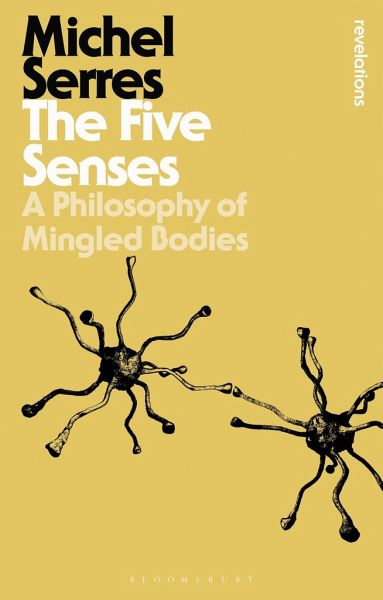
The Five Senses
A Philosophy of Mingled Bodies
Übersetzer: Cowley, Peter; Sankey, Margaret
Versandkostenfrei!
Versandfertig in ca. 2 Wochen
23,99 €
inkl. MwSt.
Weitere Ausgaben:

PAYBACK Punkte
12 °P sammeln!
Marginalized by the scientific age the lessons of the senses have been overtaken by the dominance of language and the information revolution. With The Five Senses Serres traces a topology of human perception, writing against the Cartesian tradition and in praise of empiricism, he demonstrates repeatedly, and lyrically, the sterility of systems of knowledge divorced from bodily experience. The fragile empirical world, long resistant to our attempts to contain and catalog it, is disappearing beneath the relentless accumulations of late capitalist society and information technology. Data has repl...
Marginalized by the scientific age the lessons of the senses have been overtaken by the dominance of language and the information revolution. With The Five Senses Serres traces a topology of human perception, writing against the Cartesian tradition and in praise of empiricism, he demonstrates repeatedly, and lyrically, the sterility of systems of knowledge divorced from bodily experience. The fragile empirical world, long resistant to our attempts to contain and catalog it, is disappearing beneath the relentless accumulations of late capitalist society and information technology. Data has replaced sensory pleasure, we are less interested in the taste of a fine wine than in the description on the bottle's label. What are we, and what do we really know, when we have forgotten that our senses can describe a taste more accurately than language ever could?
The book won the inaugural Prix Médicis Essai in 1985. The Revelations edition includes an introduction by Steven Connor.
The book won the inaugural Prix Médicis Essai in 1985. The Revelations edition includes an introduction by Steven Connor.



